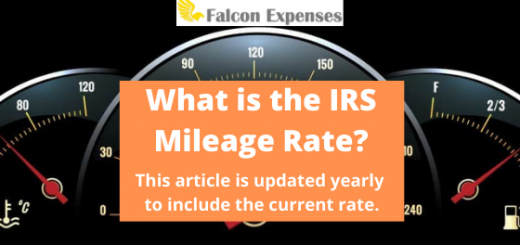Delivery Drivers Tax Deductions, Maximize Take-Home Income
Table of Contents
An overview of tax deductions for delivery drivers and couriers (some you don’t know). Reduce your gross taxable income.

There are many advantages to being a delivery driver. Often called a courier.
One advantage is self-employment. Self-employment gives delivery drivers autonomy over their schedule and life. Delivery drivers are a bit like a small business. In addition, delivery drivers have to manage businesses expenses. Continue reading for tips about how to do this.
Delivery drivers have unique business costs that are important to understand if you’re a DoorDash driver, GrubHub driver, PostMates driver, Amazon delivery driver, UberEATS driver, or InstaCart driver (to name a few).
It’s important to understand the proper way to account for delivery driver tax deductions. Maximizing tax deductions increases a delivery driver’s take-home income. More on that below.
There are many delivery driver tax deductions. Most are for expenses related to the cost of doing business. For example, the operation and use of the car or vehicle used for deliveries. We explain each of these next.
Also, delivery drivers are often challenged with keeping vehicle expenses organized. In the event of this, we recommend checking out this article, Simplified Ways to Track and Organize Vehicle Expenses.
Do you work for more than one company as a delivery driver?
Check out this article that goes over the only mobile app on the market that allows you to organize expenses (including mileage expenses) by each employer, Effortlessly Organize 1099 Expenses by Employer.
This will save you tons of time and make your life super easy come tax time.
It’s important for delivery drivers to track their mileage expenses because they are tax-deductible. Mileage tracker apps come with many features and functions. With that said, we want you to be informed about all of the top miles tracker app features and functions so you can get the most value out of your app. Therefore, check out this article we prepared with a lot of thought and care just for you, Top Mileage Tracker App Features for Self Employed.
We assure you, you want to know what features you might be overlooking, this could save you time, and money.
Expenses Related to Transportation: Cars, Vehicle, Scooters, Bike
For Deliveries by Car, Choose a Mileage Expense Deduction Method
Each mile you drive for delivery is tax-deductible.
First, choose your mileage expense tax deduction method.
You have two options*:
Actual Expense Method
The Actual Expense Method is a method where the tax payer deducts each individual expense. For example, the tax payer deducts separately depreciation, lease payments, registration fees, etc.
Standard Mileage Method
The Standard Mileage Method is a method for deducting car expenses that uses a per mile driven amount. This amount is predetermined annually by the IRS; it’s called the Standard Mileage Rate. Use this method if you own or lease your delivery vehicle. For the last 5+ years this amount has been around fifty cents per mile.
The Standard Mileage Method is convenient. Instead of spending a lot of time to itemize each expense, as done in the Actual Expense Method, all expenses are included in a single per-mile rate. Each year the IRS takes into consideration the cost of fuel, maintenance and the current economic environment to calculate the standard mileage rate. This method is straight forward, easier and will result in a larger tax deduction for delivery drivers than the Actual Expense Method.
*These two options are only for delivery drivers that use a car or vehicle for deliveries.
Review the following article for detailed information about each of these deduction methods, which one to choose, and how to use them, Actual Car Expense Method vs Standard Mileage Rate.
Standard Mileage Method
Please refer to the following article for the most up-to-date per-mile rates for the Standard Mileage Method, IRS Standard Mileage Rate.
Other, Non Transportation, Deducible Business Expenses
There are other tax-deductible business expenses available to delivery drivers and couriers. These expenses include:
- Health insurance
- Communications: Phone and phone accessories such as car charger and car mount.
- The cost of hot bags and hot blankets in addition to backpacks
- Your car loan interest payment. Check out this article for comple details, How to deduct my car payment.
- Your Falcon Expenses subscription
Do you need a business loan to finance you next big business purchase or growth strategy?
Check out this article if you answered yes, How to Get Approved for a Small Business Loan
What are the to expense deductions for delivery drivers?
Mileage and vehicle-related expenses are unarguably the top expense deductions for delivery drivers.
Commonly Overlooked Expense Deductions for Delivery Drivers
It’s not uncommon for delivery drivers and couriers to overlook miscellaneous business expenses.
For example, expenses for items and services used specifically for work such as car maintenance expenses (for those using the actual expense method), cost of phone supplies such as car mounts, etc. With that said, most items you purchase to use as part of your work are likely deductible. They are at least partially deductible if not completely tax-deductible.
Self Employment Tax
There are taxes you should be aware of as a self-employed delivery driver.
For example, Medicare and Social Security Taxes. Did you know that self-employed individuals pay their own Medicare and Social Security Tax? Don’t worry, we’ve got you covered.
Read the following article for details about self-employment tax, What is Self Employment Tax?
About Falcon Expenses
Falcon Expenses is a top-rated expense and mileage tracker app for self-employed and small businesses. Falcon is great for business travels and remote workers.
On average, Falcon customers record $6,600, in annual tax deductions. Get started today.
The longer you wait, the more tax deductions you miss.
Automatically track mileage expenses and expenses, keep an odometer log, receipt vault and log billable hours. Quickly organize expenses by time period, project, or client. Easily create expense reports and mileage logs with your expense data to email to anyone in PDF or spreadsheet formats, all from your phone. Falcon’s expense report template is IRS compliant. Use for keeping track of tax deductions, mileage logs, time logs, reimbursements, taxes, record keeping, and more. Falcon Expenses is great for self-employed, freelancers, realtors, delivery drivers, couriers, business travelers, truckers, and more.
Was this article helpful?
We are a team of writers and contributors with a passion for creating valuable content for small business owners, self-employed, entrepreneurs, and more.
Feel free to reach out to use as support@falconexpenses.com





